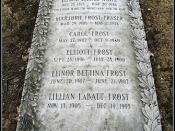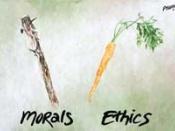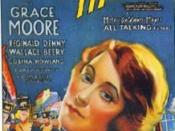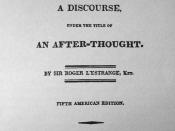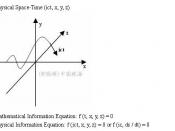The protagonist in the novel We by Zamyatin is D-503, a mathematician and builder of the Integral. D-503 starts off by staying true to the one State and believing in the one state. And why would we question this, he was born this way, he was introduced to a world with a preset time to wake up, eat, work and sleep, where everything is already known, therefore no need for an imagination, no need for any irrational trains of thought. People and auditorium were all referred to as "numbers" and all lived, worked and acted precisely in unison. The people were ruled by The Benefactor, and controlled and watched by the Guardians. The Green Wall, a wall made of glass surrounded the civilization of the One State from the outside, which held irrationalities and illogical ideas and matter Everything was perfect or was it. D-503 was introduced to many irrationalities that did not fit in the world of the One State creating inner conflict because he did not know what to follow: His morals? or his feelings? Morally, D-503 wanted to follow the One state because this was the way he grew up, this was what he believed in, what he understood.
Therefore this was the only way he could see to live and in broad terms be happy. D-503 was introduced to many irrationalities in the one State and the first one we are introduced to, which has been with him the longest, is an irrationality in math, the square root of "ÃÂ1. "I don't want ÃÂ÷, Take the square root of ÃÂ÷ out of me"ÃÂ(Pg 39) He does not know how to handle it, this creates conflict because to him everything should be able to be put into a mathematical equation but this is an imaginary number therefore being irrational. I-330 also works at this affect, but in a very different way. I-330 focuses on his emotional side, his feelings, his emotions and his soul. Love, lust and laughter, are all felt by D-503 influenced by I-330 and are prohibited in the one state because they cannot be placed into a mathematical equation, resulting in them being illogical. "to explain my laughter to her logically"ÃÂ(Pg 6) , but throughout the book we see D-503 always going back to his morals, "I am certain that sooner or later I shall succeed in fitting all these absurdities into some logical formula. This reassures me and I hope will reassure you."à(Pg 75) He believes that he will still be able to fit his emotions and ÃÂ÷ into a logical formula of the One State. D-503 confronts many inner conflicts, which are conflicting between morals and emotions.
The Protagonist in the novel The Wars by Timothy Findley is Robert Ross, a typical Canadian boy with morals and values set of ethics. In the beginning of the book we are introduced to Robert's strong ethics when he wants to take care of his sisters 10 rabbits instead of killing them. Robert goes so far to attack the soldier that his father hired to kill these rabbits. "Robert yelled at him something like:' you bastard! Bastard! What are soldiers for?' [...] Robert regained his feet and lunged, butting his head likes a battering ram between the giant's shoulder blades". (Pg 20) Robert has a difficult decision, in either going home, or going to the army. He chooses to join the army to escape the events that has occurred at home therefore he decided to go to the army accepting the possibility of the physical and psychological damage that could happen due to the war. The more Robert becomes entrenched in the Great War, the more his values and ethics are violated. While on the ship to England, Robert is forced to kill a living creature for the first time. He has to kill a horse with a broken leg: "Robert could barely move in his panic but he knew that he had to show his nerve and his ability as an officer". (Pg 66) This shows that his belief in his role within the army is becoming more important to him than his moral values. This time, the army triumphs over Robert's morals. The pressure the army puts on him raises and he is afraid of losing his command. Robert kills the horse. As the story progresses, the threat to Robert's ethics grows exponentially. The next time Robert kills is while he is fighting in the trenches on the battleground. Here he kills a human being: But we always see his ethics and moral always come back to his mind. Like after he killed the human being, he kept on hearing the bird that sung and that "ÃÂit would never stop' so therefore he felt bad. Also, when he went to the "ÃÂ wet goods "ÃÂ he fought back against the military beliefs by not sleeping with that girl, he became violent and frustrated "He threw the boot across the room and shattered the mirror"ÃÂ (Pg 44). The concept of fighting back and questioning authority reappears throughout the entire novel, showing the internal conflict within Robert Ross trying to go by his morals. He is stopped fighting against the Germans but against the authorities that forced him to do things, like when his father with the rabbits and Captain Leather and the horse.
